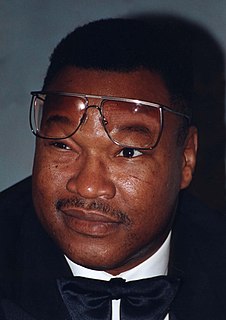A Quote by Alan Furst
We're the roughest people in the way we play and live, and that is because Americans come from people who all got up one morning and went 5,000 miles, and that was a time in the 19th century when it wasn't so easy to do.
Related Quotes
In the beginning of the 19th century, maybe forty percent of women and fifty percent of men could produce a signature, which meant that they'd had at least three years of education because it was in third grade that people started penmanship in the 19th century. And of course black people could get killed if they got caught teaching themselves to read in some parts of the country.
People have asked me about the 19th century and how I knew so much about it. And the fact is I really grew up in the 19th century, because North Carolina in the 1950s, the early years of my childhood, was exactly synchronous with North Carolina in the 1850s. And I used every scrap of knowledge that I had.
The Toothbrush mustache was first introduced in Germany by Americans, who turned up with it at the end of the 19th century the way Americans would turn up with ducktails in the 1950s. It was a bit of modern efficiency, an answer to the ornate mustaches of Europe - pop effluvia that fell into the grip of a bad, bad man.
We do have to treat people the way Americans always treat people, with the highest level of compassion and care. But they will have to be returned, because that is the law. If you ignore that, if you don't apply that - as heartbreaking as it may be - you are basically telling another 80,000 people to try to come.
We've got people that are paying premiums of $1,000 a month out there, and then they've got a deductible of $1,000. If you're making $40,000, $50,000, $60,000 out there and you've got an Obamacare plan, by and large you've got an insurance card, but you don't have any care because you can't afford the deductible.
I was really interested in 20th century communalism and alternative communities, the boom of communes in the 60s and 70s. That led me back to the 19th century. I was shocked to find what I would describe as far more utopian ideas in the 19th century than in the 20th century. Not only were the ideas so extreme, but surprising people were adopting them.
I'd signed up not just for Christianity but the established Church of England. That has a particular history and I think we rather lost it in the 19th Century, we became so much part of empire and colonialism, the language of the Church Of England still reflects that Victorian time. As the 20th Century developed, not surprisingly people left the church and I can see the church's role in losing people.
The Anglo-American tradition is much more linear than the European tradition. If you think about writers like Borges, Calvino, Perec or Marquez, they're not bound in the same sort of way. They don't come out of the classic 19th-century novel, which is where all the problems start. 19th-century novels are fabulous and we should all read them, but we shouldn't write them.
The percentage of mentally disturbed people in the United States is very high. From the time the American gets up in the morning, he feels as if someone is trying to influence his will in some way: he is a person with a thousand pressures. The Americans live under a great strain ... and have great feelings of frustration.
The vast majority of those of Scots lineage living in the Ulster counties in the 18th century had come across, or their people had come across, in the 1690s. And they were victims of famine. Over that decade, 30000-50000 people were fleeing from that disaster. In terms of per capita loss, it was of the same order of magnitude as the Irish famine (of the 19th century).

































